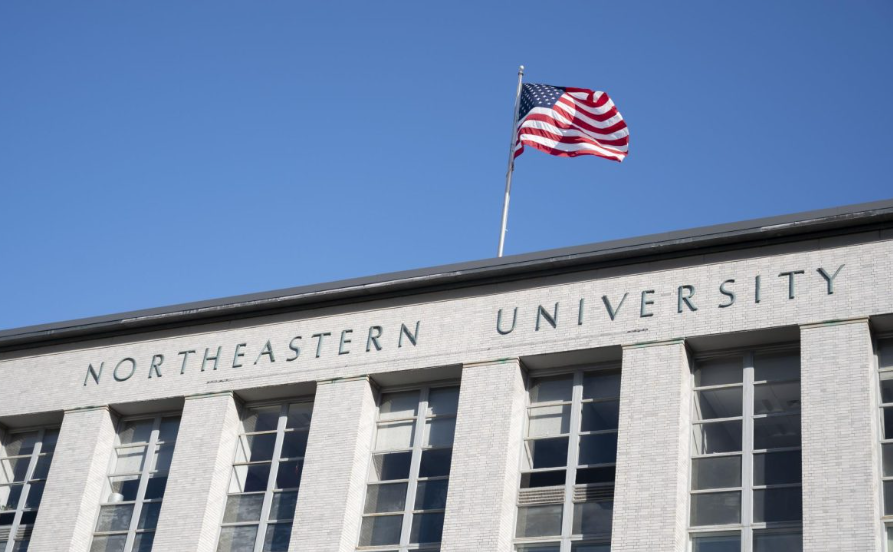
A Massachusetts appeals court ruled in favor of Northeastern University’s expansion of its Marine Science Center in Nahant on September 16, marking a significant victory for the institution after nearly six years of pushback from local officials and residents.
The court’s recent decision came after Nahant sought to appeal an April ruling from the Essex Superior Court, which rejected the town’s attempt to claim 12 acres of Northeastern’s 20.4-acre property through eminent domain, a process that allows governments to acquire private land for public use with proper compensation.
This is the second legal defeat for Nahant since a ruling in 2022 favored the university. Many local residents expressed frustration, especially over the hefty legal expenses incurred during the fight. One resident, who requested anonymity due to her husband’s job with Nahant’s government, lamented, “Everyone is just really fed up. We’ve lost, and now we have to find a way to pay.”
In the latest case, Nahant argued that the disputed land had been designated for public use as an ecological preserve. However, the court found no written evidence supporting this claim, solidifying Northeastern’s ownership of the land.
Northeastern’s proposal for the Marine Science Center does not preclude further development or suggest a commitment to preserving any land for public use, contradicting the town’s claims.
Northeastern’s Vice President for Communications, Renata Nyul, expressed satisfaction with the Appeals Court’s ruling, stating, “We hope Nahant taxpayers will urge the Board of Selectmen to avoid further costly litigation and seek a resolution that benefits both the town and the university’s essential research and teaching mission.”
Historically, Northeastern and Nahant had a collaborative relationship since the university acquired the land in 1965. Tensions escalated in 2018 when Northeastern announced its expansion plans, leading some residents to feel blindsided.
“It was jaw-dropping,” said the resident who wished to remain anonymous. “We felt like it had been in progress for a long time and we knew nothing about it.”
In response to the 2018 announcement, residents petitioned Northeastern President Joseph E. Aoun and held protests on the university’s Boston campus against the proposal. This activism stemmed from the now-defunct organization Keep Nahant Wild, part of the Nahant Preservation Trust, which initiated the lawsuit against Northeastern.
However, over time, public sentiment shifted. “As more people learned about what Northeastern planned to do and what they were willing to offer, support grew,” said the anonymous resident, referencing Northeastern’s commitment to fund local infrastructure and provide internships and scholarships to Nahant students—an investment of around $ 6 million.
Additionally, prior to the eminent domain case, the university proposed placing a conservation restriction on approximately 90% of its Nahant property to prevent further development.
Despite revised proposals from the university in December 2018 aimed at addressing community concerns, opposition remained. “The crowd was hostile from the start; they were more focused on fears than what Northeastern offered,” noted Ken Carangelo, a local resident against the eminent domain effort.
In a close call at the 2021 Nahant Annual Town Meeting, residents voted to pursue land acquisition by eminent domain, with 647 in favor and 271 against, reaching the necessary two-thirds majority by just 35 votes. Chairman of the Board of Selectmen, Josh Antrim, referenced a $ 3 million fund from private donors to cover potential litigation costs.
Carangelo voiced his worries about exceeding this budget, highlighting the possibility that private contributors may not provide additional support. “If the damages exceed what’s allocated, it could become a taxpayer burden,” he cautioned.
With Northeastern winning multiple court cases, financial concerns among residents have escalated. Carangelo recently questioned town officials about potential extra costs. In response, Antrim remained vague.
Initial estimates suggest that the total legal fees will surpass the 4.5millionallocatedbythetown.Earlierthisyear,Northeasternrequested 25 million from Nahant for legal expenses, which the town is contesting.
“[The town] wasn’t anticipating damages higher than 3or 4.5 million. Some residents were assured it wouldn’t go above that, so they weren’t worried,” Carangelo remarked. “Promises of never going over that amount now feel untrustworthy.”
Town Administrator Antonio Barletta declined an interview but stated in an email, “Protecting Nahant’s limited open spaces is crucial. Although we’re disappointed by the recent ruling, our commitment to protecting our natural resources remains steadfast.”
Carangelo expressed skepticism regarding the motivations of those opposing the expansion. Despite the town’s emphasis on environmental concerns, he believes the opposition is rooted in exclusivity fears over increased student traffic rather than genuine environmental protection.
April’s ruling by Judge Karp stated that Nahant’s attempt to seize land was “in bad faith for an improper reason,” concluding that the town’s true motivation was not environmental but a desire to obstruct Northeastern’s expansion. The court noted that private interests had exploited the town’s eminent domain authority for their benefit.
“It feels like a crusade at this point,” Carangelo stated. He believes the best outcome would be for Nahant to acknowledge the inevitable loss and negotiate with Northeastern instead of pursuing a costly legal battle.
In a 2019 interview, Nahant resident Peter Rogal characterized the situation as a “David and Goliath” scenario, reflecting the deep community divide. “Don’t get me wrong, nobody I know is enthusiastic about Northeastern’s project,” said third-year biochemistry student at Northeastern, Sami Awad. “But most people accept that it’s over.”

Leave a Reply